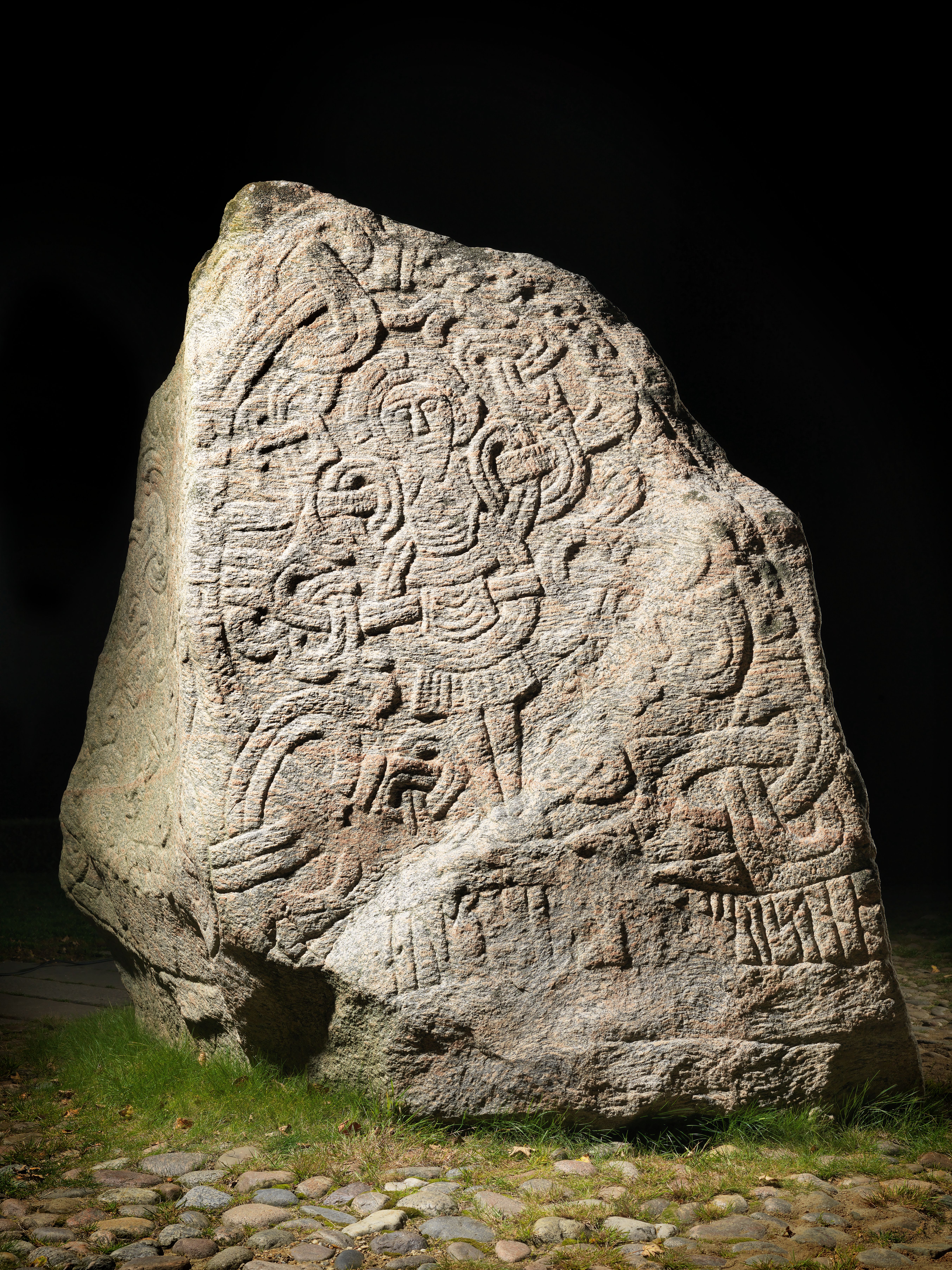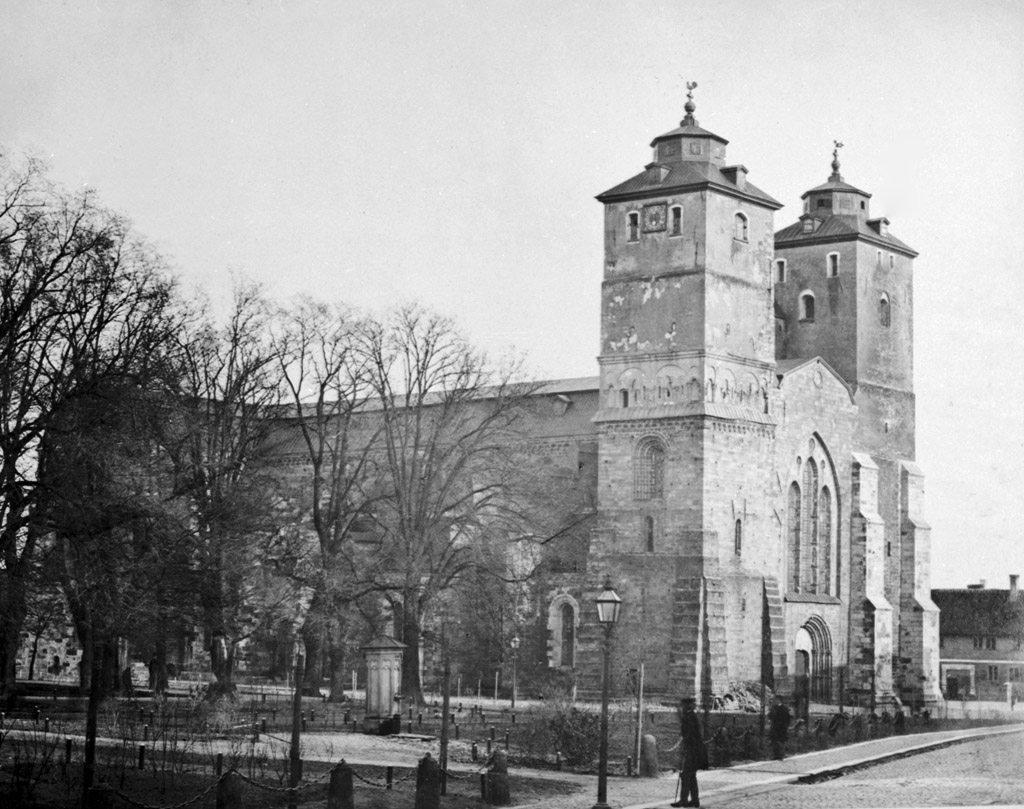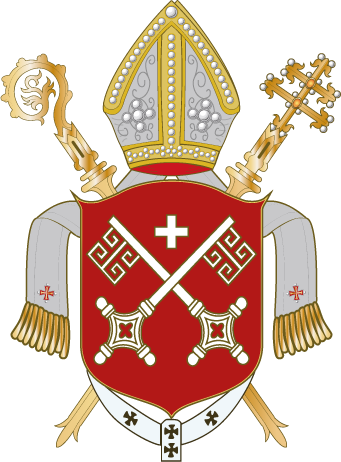|
Eric I Of Denmark
Eric I ( – 10 July 1103), also known as Eric the Good ( da, Erik Ejegod), was King of Denmark following his brother Olaf I Hunger in 1095. He was a son of Sweyn II. His mother's identity is unknown. He married Boedil Thurgotsdatter. Biography Eric was born in the town of Slangerup in North Zealand - the largest Danish island. During the rule of his half-brother Canute IV he was an eager supporter of the king, but he was spared during the rebellion against Canute. Eric remained at the royal farm instead of accompanying Canute to St Albans priory in Odense, where Canute was killed. Eric talked his way off the farm and fled to Zealand and then to Scania, which was part of Denmark at the time. Olaf I Hunger was elected King of Denmark, but his reign was short. At last Eric was elected as a king at the several '' landsting'' assemblies in 1095. Eric was well liked by the people and the famines that had plagued Denmark during Olaf Hunger's reign ceased. For many it seemed ... [...More Info...] [...Related Items...] OR: [Wikipedia] [Google] [Baidu] |
King Of Denmark
The monarchy of Denmark is a constitutional political system, institution and a historic office of the Kingdom of Denmark. The Kingdom includes Denmark proper and the autonomous administrative division, autonomous territories of the Faroe Islands and Greenland. The Kingdom of Denmark was already consolidated in the 8th century, whose rulers are consistently referred to in Franks, Frankish sources (and in some late Frisians, Frisian sources) as "kings" (). Under the rule of King Gudfred in 804 the Kingdom may have included all the major provinces of medieval Denmark. The current unified Kingdom of Denmark was founded or re-united by the Vikings, Viking kings Gorm the Old and Harald Bluetooth in the 10th century. Originally an elective monarchy, it became hereditary monarchy, hereditary only in the 17th century during the reign of Frederick III of Denmark, Frederick III. A decisive transition to a constitutional monarchy occurred in 1849 with the writing of the first democrat ... [...More Info...] [...Related Items...] OR: [Wikipedia] [Google] [Baidu] |
Scania
Scania, also known by its native name of Skåne (, ), is the southernmost of the historical provinces (''landskap'') of Sweden. Located in the south tip of the geographical region of Götaland, the province is roughly conterminous with Skåne County, created in 1997. Like the other former provinces of Sweden, Scania still features in colloquial speech and in cultural references, and can therefore not be regarded as an archaic concept. Within Scania there are 33 municipalities that are autonomous within the Skåne Regional Council. Scania's largest city, Malmö, is the third-largest city in Sweden, as well as the fifth-largest in Scandinavia. To the north, Scania borders the former provinces of Halland and Småland, to the northeast Blekinge, to the east and south the Baltic Sea, and to the west Öresund. Since 2000, a road and railway bridge, the Öresund Bridge, bridges the Sound and connects Scania with Denmark. Scania forms part of the transnational Øresund Region ... [...More Info...] [...Related Items...] OR: [Wikipedia] [Google] [Baidu] |
Russia
Russia (, , ), or the Russian Federation, is a transcontinental country spanning Eastern Europe and Northern Asia. It is the largest country in the world, with its internationally recognised territory covering , and encompassing one-eighth of Earth's inhabitable landmass. Russia extends across eleven time zones and shares land boundaries with fourteen countries, more than any other country but China. It is the world's ninth-most populous country and Europe's most populous country, with a population of 146 million people. The country's capital and largest city is Moscow, the largest city entirely within Europe. Saint Petersburg is Russia's cultural centre and second-largest city. Other major urban areas include Novosibirsk, Yekaterinburg, Nizhny Novgorod, and Kazan. The East Slavs emerged as a recognisable group in Europe between the 3rd and 8th centuries CE. Kievan Rus' arose as a state in the 9th century, and in 988, it adopted Orthodox Christianity from the ... [...More Info...] [...Related Items...] OR: [Wikipedia] [Google] [Baidu] |
The Holy Land
The Holy Land; Arabic: or is an area roughly located between the Mediterranean Sea and the Eastern Bank of the Jordan River, traditionally synonymous both with the biblical Land of Israel and with the region of Palestine. The term "Holy Land" usually refers to a territory roughly corresponding to the modern State of Israel and the modern State of Palestine. Jews, Christians, and Muslims regard it as holy. Part of the significance of the land stems from the religious significance of Jerusalem (the holiest city to Judaism, and the location of the First and Second Temples), as the historical region of Jesus' ministry, and as the site of the first Qibla of Islam, as well as the site of the Isra and Mi'raj event of 621 CE in Islam. The holiness of the land as a destination of Christian pilgrimage contributed to launching the Crusades, as European Christians sought to win back the Holy Land from Muslims, who had conquered it from the Christian Eastern Roman Empire in ... [...More Info...] [...Related Items...] OR: [Wikipedia] [Google] [Baidu] |
Archbishop Of Lund
List of (arch)bishops of Lund. Until the Danish Reformation the centre of a great Latin (arch)bishopric, Lund has been in Sweden since the Treaty of Roskilde in 1658. The Diocese of Lund is now one of thirteen in the Church of Sweden. Catholic Episcopate ''(all Roman Rite; some dates disputed according to the source) ;''Suffragan Bishops of Lund'' * Henrik (1060–1065? or 1048? – death 1060.08.21) * Egino (1065? – death 1072.10.19); ?former bishop of Dalby * Ricwald (1072?1075 – death 1089.05.26) * Ascer (1089–1103 ''see below'') ;''Metropolitan Archbishops of Lund'' * Ascer (''see above'' 1103 – death 1137.05.05) * Eskil (1138?1137–1177?1179) * Absalon Hvide (1177?1179 – death 1201.03.21) * Andreas Sunesen (1201–1222?1223) * Peder Saxesen (1224.01.11 – death 1228.07.11) * Uffe Thrugotsen (1228?1230 – death 1252.12.15) * Jakob Erlandsen (1253.08.13 – death 1274.02.18) * Trugot Torstensen (1276?1277.01.13 – death 1280.05.02) * Jens Dros (128 ... [...More Info...] [...Related Items...] OR: [Wikipedia] [Google] [Baidu] |
Asser Thorkilsson
Asser (or Ascer) Thorkilsen ( 1089 – 5 May 1137), a son of Thorkil (Svend) Thrugotsen and his wife Inge, was the Bishop of Lund from 1089, and then the first Archbishop of Lund List of (arch)bishops of Lund. Until the Danish Reformation the centre of a great Latin (arch)bishopric, Lund has been in Sweden since the Treaty of Roskilde in 1658. The Diocese of Lund is now one of thirteen in the Church of Sweden. Cath ... from 1104 until his death. He died on 5 May 1137 in Lund. References * 11th-century Roman Catholic bishops in Denmark 12th-century Roman Catholic archbishops in Denmark Roman Catholic archbishops of Lund 1137 deaths Year of birth unknown {{Denmark-bio-stub ... [...More Info...] [...Related Items...] OR: [Wikipedia] [Google] [Baidu] |
Archbishop Of Hamburg-Bremen
This list records the bishops of the Roman Catholic diocese of Bremen (german: link=no, Bistum Bremen), supposedly a suffragan of the Archbishopric of Cologne, then of the bishops of Bremen, who were in personal union archbishops of Hamburg (simply titled Archbishops of Hamburg-Bremen), later simply titled archbishops of Bremen, since 1180 simultaneously officiating as rulers of princely rank (prince-archbishop) in the Prince-Archbishopric of Bremen (german: link=no, Erzstift Bremen; est. 1180 and secularised in 1648), a state of imperial immediacy within the Holy Roman Empire. Bremen and Hamburg were the seats of the chapters at Bremen Cathedral and Hamburg Concathedral, while the incumbents used to reside in their castle in Vörde since 1219. Titles of the incumbents of the Bremian See Not all incumbents of the Bremian See were imperially invested princely power as Prince-Archbishops and not all were papally confirmed as bishops. In 1180 part of the Bremian diocesan terr ... [...More Info...] [...Related Items...] OR: [Wikipedia] [Google] [Baidu] |
Skåne
Scania, also known by its native name of Skåne (, ), is the southernmost of the historical provinces (''landskap'') of Sweden. Located in the south tip of the geographical region of Götaland, the province is roughly conterminous with Skåne County, created in 1997. Like the other former provinces of Sweden, Scania still features in colloquial speech and in cultural references, and can therefore not be regarded as an archaic concept. Within Scania there are 33 municipalities that are autonomous within the Skåne Regional Council. Scania's largest city, Malmö, is the third-largest city in Sweden, as well as the fifth-largest in Scandinavia. To the north, Scania borders the former provinces of Halland and Småland, to the northeast Blekinge, to the east and south the Baltic Sea, and to the west Öresund. Since 2000, a road and railway bridge, the Öresund Bridge, bridges the Sound and connects Scania with Denmark. Scania forms part of the transnational Øresund Region. ... [...More Info...] [...Related Items...] OR: [Wikipedia] [Google] [Baidu] |
Lund
Lund (, , ) is a city in the southern Swedish provinces of Sweden, province of Scania, across the Øresund, Öresund strait from Copenhagen. The town had 91,940 inhabitants out of a municipal total of 121,510 . It is the seat of Lund Municipality, Scania County. The Øresund Region, Öresund Region, which includes Lund, is home to more than 4.1 million people. Archeologists date the foundation of Lund to around 990, when Scania was part of Denmark. From 1103 it was the seat of the Catholic Metropolitan Archdiocese of Lund, and the towering Lund Cathedral, built circa 1090–1145, still stands at the centre of the town. Denmark ceded the city to Sweden in the Treaty of Roskilde in 1658, and its status as part of Sweden was formalised in 1720. Lund University, established in 1666, is one of Scandinavia's oldest and largest institutions for education and research. [...More Info...] [...Related Items...] OR: [Wikipedia] [Google] [Baidu] |
Archbishopric
In church governance, a diocese or bishopric is the ecclesiastical district under the jurisdiction of a bishop. History In the later organization of the Roman Empire, the increasingly subdivided provinces were administratively associated in a larger unit, the diocese (Latin ''dioecesis'', from the Greek term διοίκησις, meaning "administration"). Christianity was given legal status in 313 with the Edict of Milan. Churches began to organize themselves into dioceses based on the civil dioceses, not on the larger regional imperial districts. These dioceses were often smaller than the provinces. Christianity was declared the Empire's official religion by Theodosius I in 380. Constantine I in 318 gave litigants the right to have court cases transferred from the civil courts to the bishops. This situation must have hardly survived Julian, 361–363. Episcopal courts are not heard of again in the East until 398 and in the West in 408. The quality of these courts was l ... [...More Info...] [...Related Items...] OR: [Wikipedia] [Google] [Baidu] |
Canonization
Canonization is the declaration of a deceased person as an officially recognized saint, specifically, the official act of a Christian communion declaring a person worthy of public veneration and entering their name in the canon catalogue of saints, or authorized list of that communion's recognized saints. Catholic Church Canonization is a papal declaration that the Catholic faithful may venerate a particular deceased member of the church. Popes began making such decrees in the tenth century. Up to that point, the local bishops governed the veneration of holy men and women within their own dioceses; and there may have been, for any particular saint, no formal decree at all. In subsequent centuries, the procedures became increasingly regularized and the Popes began restricting to themselves the right to declare someone a Catholic saint. In contemporary usage, the term is understood to refer to the act by which any Christian church declares that a person who has died is a sain ... [...More Info...] [...Related Items...] OR: [Wikipedia] [Google] [Baidu] |
Rome
, established_title = Founded , established_date = 753 BC , founder = King Romulus ( legendary) , image_map = Map of comune of Rome (metropolitan city of Capital Rome, region Lazio, Italy).svg , map_caption = The territory of the ''comune'' (''Roma Capitale'', in red) inside the Metropolitan City of Rome (''Città Metropolitana di Roma'', in yellow). The white spot in the centre is Vatican City. , pushpin_map = Italy#Europe , pushpin_map_caption = Location within Italy##Location within Europe , pushpin_relief = yes , coordinates = , coor_pinpoint = , subdivision_type = Country , subdivision_name = Italy , subdivision_type2 = Regions of Italy, Region , subdivision_name2 = Lazio , subdivision_type3 = Metropolitan cities of Italy, Metropolitan city , subdivision_name3 = Metropolitan City of Rome Capital, Rome Capital , government_footnotes= , government_type = Mayor–council gover ... [...More Info...] [...Related Items...] OR: [Wikipedia] [Google] [Baidu] |








